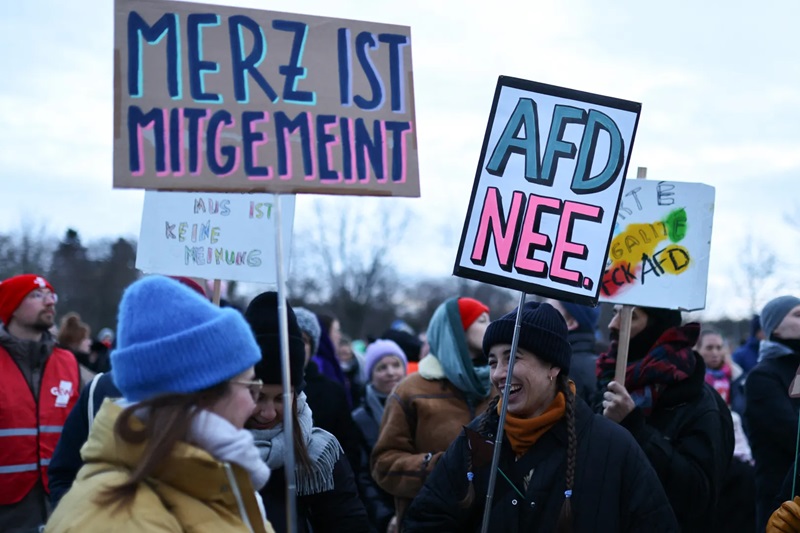

protests in germany afds nationalist agenda versus migrants opposition
Recently in Germany, there have been large protests in many cities. These protests are a reaction to a controversial plan discussed by some members of the Alternative for Germany (AfD) party, a far-right political group.
This plan involves deporting a large number of immigrants, including some who have now taken German citizenship. Some claim that the idea of such a massive deportation has reminded many people of Germany’s dark past, particularly the Nazi era.
The AfD argues that its policies aim to protect the rights and resources of German citizens. They believe that Germany should focus on its own people first. This perspective resonates with a segment of the population, especially in some eastern regions where the party has strong support.
On the other hand, the protests, which have drawn hundreds of thousands across the country, show opposition to the AfD’s views. Protesters are defending democracy and opposing what they see as right-wing extremism. They argue that the AfD’s plans are inhumane and an attack on democracy and the rule of law.
The protests are a mix of different people, including those with immigrant backgrounds and those who are concerned about the rise of far-right ideologies in Germany.
German Chancellor Olaf Scholz and other politicians have expressed support for the protests. They see it as a positive sign of defending democratic values and opposing racism and hate speech.
This is true that Migrants can impact the local population in various ways. They might compete for jobs, particularly in sectors with high demand for labor, which can lead to concerns among local residents about job availability.
However, migrants may also contribute to the economy by working, paying taxes, and consuming goods and services, which may create new jobs or support economic growth.
The overall impact depends on factors like the number of migrants, their skills, the state of the economy, and how well they cooperate with German society.
The situation is complex. On one side, there’s the AfD with its focus on prioritizing citizens born in Germany, and on the other side, there are large groups of people who believe in inclusive, democratic values.
This tension reflects deeper issues in German society about immigration, nationalism, and the country’s historical legacy. The outcome of this situation could have significant implications for German politics and society.
The UK government took new immigration rules for Skilled Worker visa holders that target employment exploitation while assuring fair wages.…
A pall fell over the nation's public health agencies as the security of thousands of employees melted away beneath them.…
Federal health organizations started making staff cuts on Tuesday because the Trump administration wants to cut 10,000 full-time HHS positions.…
For most job cultures, the five day workweek ends in a two day weekend, giving employees a chance to rest…
Indian IT giant Infosys recently fired 45 trainees at one of its offices in Bengaluru after they failed to clear…
One worker who lamented his decline said that over the years, his income fell to nothing as he became broke…
This website uses cookies.
Read More